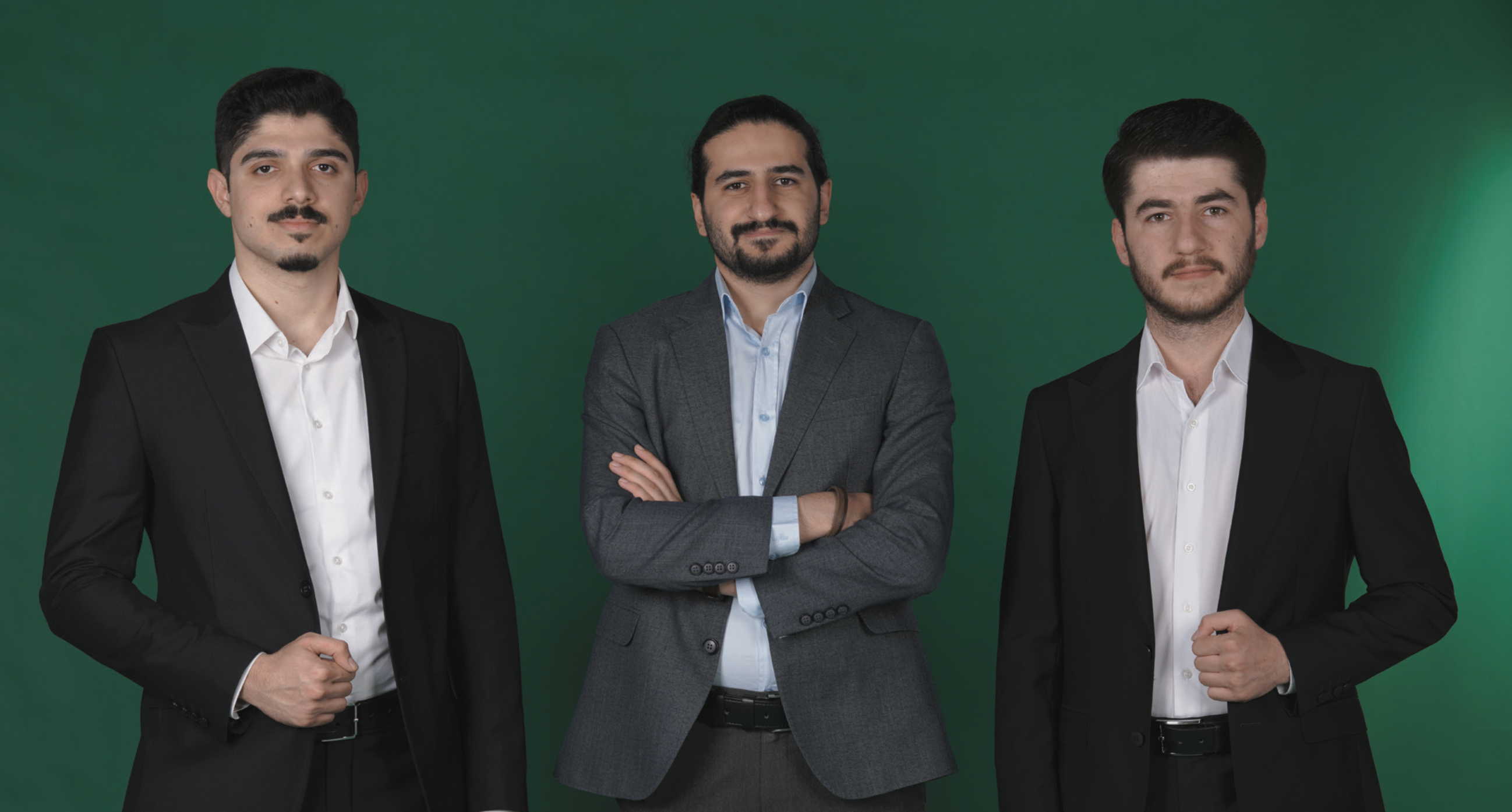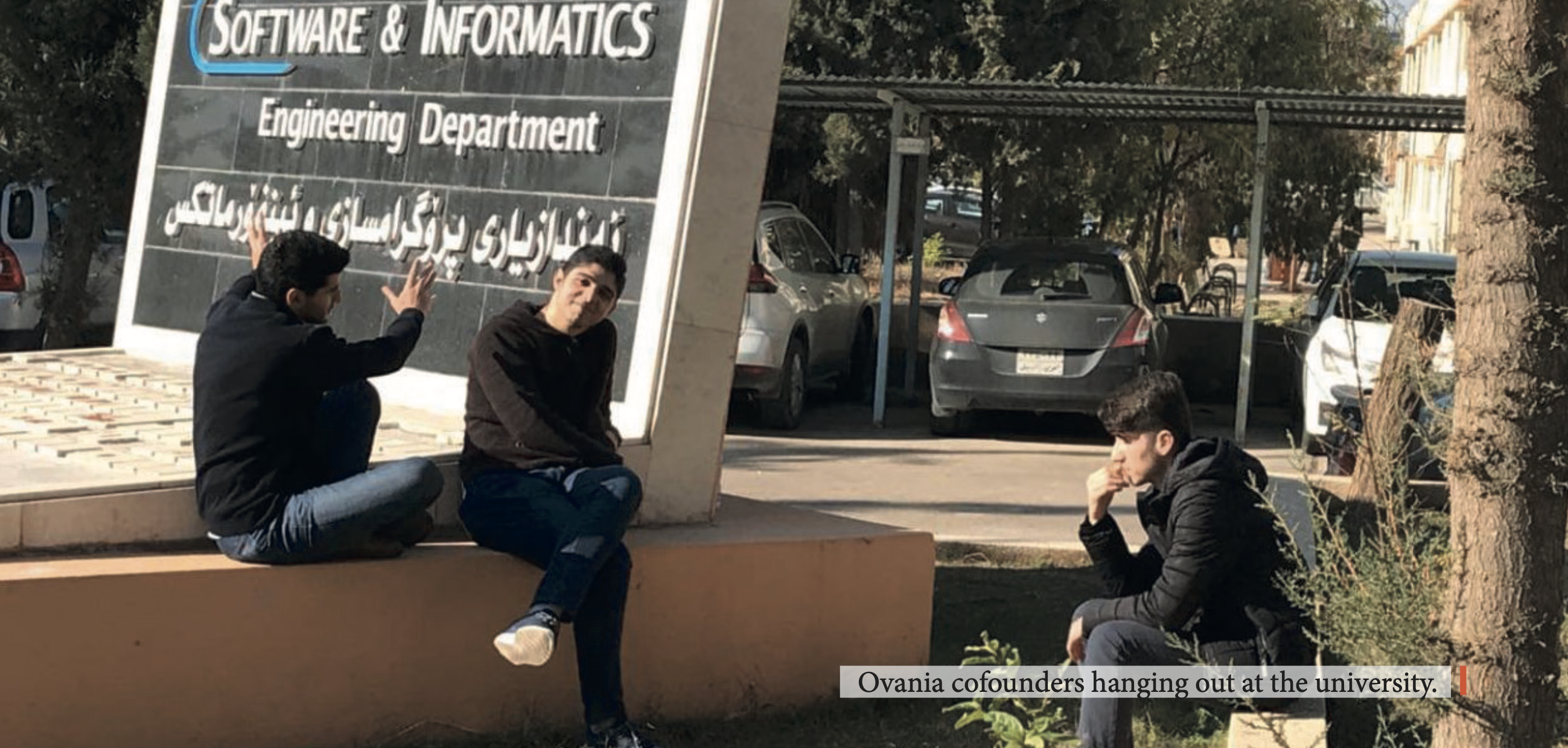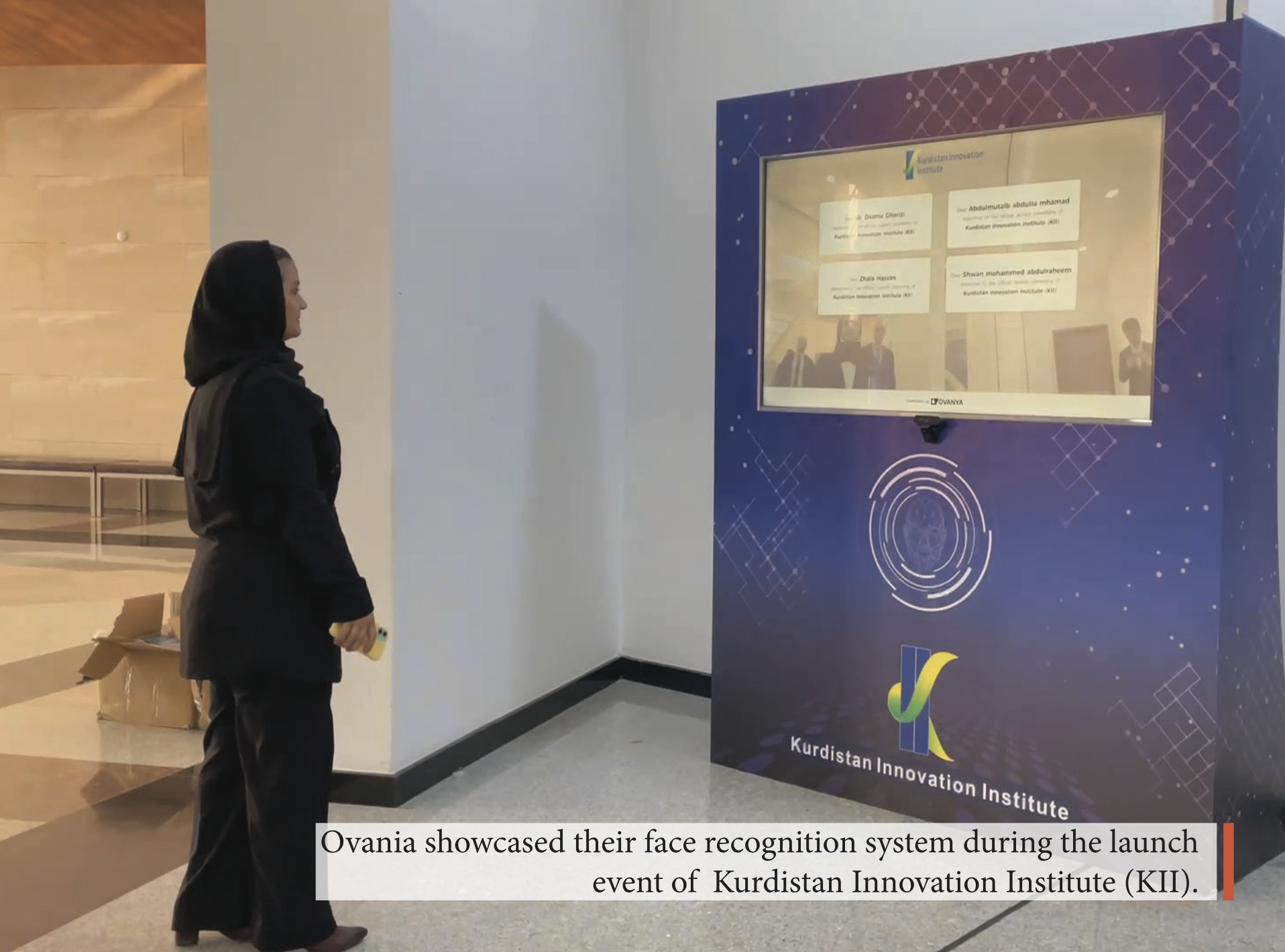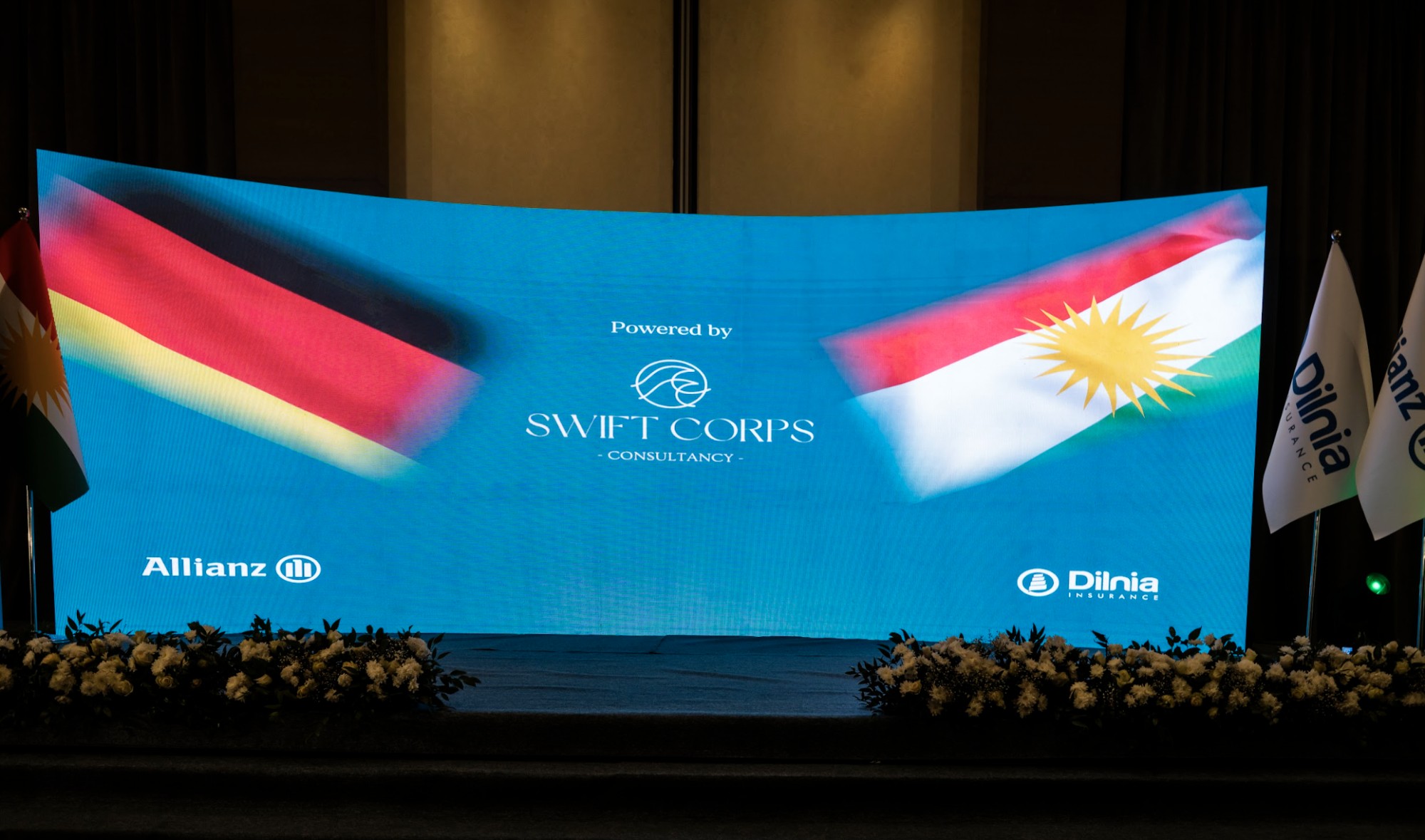Three enterprising young minds, graduates of Salahaddin University's College of Software Engineering, decided one day to take matters into their own hands in a world where artificial intelligence (AI) is becoming ubiquitous.
Yehya Chali (23), Abdubasit Zahir (25), and Ebdulmomen Ahmed (23) were all set on making a name for themselves in the tech industry. Despite their impressive talents, they were confronted with a daunting reality: no companies were willing to support their dream of developing cutting-edge AI programming.

Undaunted by this lack of interest, the trio formed their own tech hub firm, Ovanya.
Abdulbasit revealed the hidden meaning behind the company's name. According to him, ovanya is an old Kurdish word that translates to "gathering" and can be traced back to Zoroastrianism's Avesta scripture, one of the oldest religions in the world.
The word itself is etched into the curves of Mount Bestun, part of the Zagros Mountains range in the Kermanshah Province of western Iran. This area is primarily inhabited by Kurds, lending it an air of ancient wisdom and history.
The trio set out to develop several groundbreaking programs, including an AI-powered Kurdish-language spell checker and a resourceful engine that automatically recommends similar web articles for Kurdish mainstream media.
Today, Ovanya is trying to transform the future of marketing in the Kurdistan region.
"The days of static images and repetitive videos that fail to capture the attention of modern consumers are long gone," Ebdulmomen said, adding that advertising agencies are now interested in interactive ads that not only captivate audiences but also provide valuable insights and data to businesses for targeted marketing campaigns.

Ovanya recently made headlines in the advertising industry by developing software and technology for Iraqi marketing firm Sky Marketing’s outdoor billboards that collects data such as views, viewers, gender, age groups, and attention tracking. With built-in sensors that detect how many people are looking at the advertisement, for how long, and even their gender and approximate age, these billboards are revolutionizing the way that ads are displayed and measured in the Kurdistan region.
But Ovanya isn't stopping there. The company is now taking interactivity to the next level by developing a program that reacts to gender, body movements, hand gestures, faces, facial expressions, clothing, age, general movement, and voice. As people pass by a billboard, the program detects their gender and displays advertisements for products that are specifically tailored to them. If a woman passes by the billboard, only women's products will be displayed, and vice versa for men.
Abdulbasit noted what Ovanya is doing is not new; it has been around for a while in Western and developed countries. But Ovanya has taken it to new heights by developing an algorithm specifically designed to identify Iraqi faces of both genders.

Privacy concerns
As AI continues to evolve, so do concerns about privacy. However, Ovanya CEO Yehya Chali is adamant that his company is completely transparent when it comes to data gathering and protecting personal privacy and identity.
"We do not gather personal identities and images, only digits," Yehya stated, addressing privacy concerns. He also added that the company is always ready to disclose its data whenever requested by the court.
Yehya further explained that it's better for a transparent local company like his to gather data than a foreign company. "If you bring a foreign company to do facial recognition and gather data, you don't know where all this data goes and how it is used," he warned.
While some may worry about the impact of AI on human labor, Yehya doesn't think that's an issue in Iraq. "In Iraq, AI is used only for training and entertainment. It's not used to replace human labor, only for tasks that humans can't do," he reassured.
Sardar Sattar is a translator and journalist based in the Kurdistan Region. He has an MA in English Studies from the University of Lodz, Poland. He has translated several books and political literature into Kurdish and English. He writes regularly for local and international newspapers and journals.

